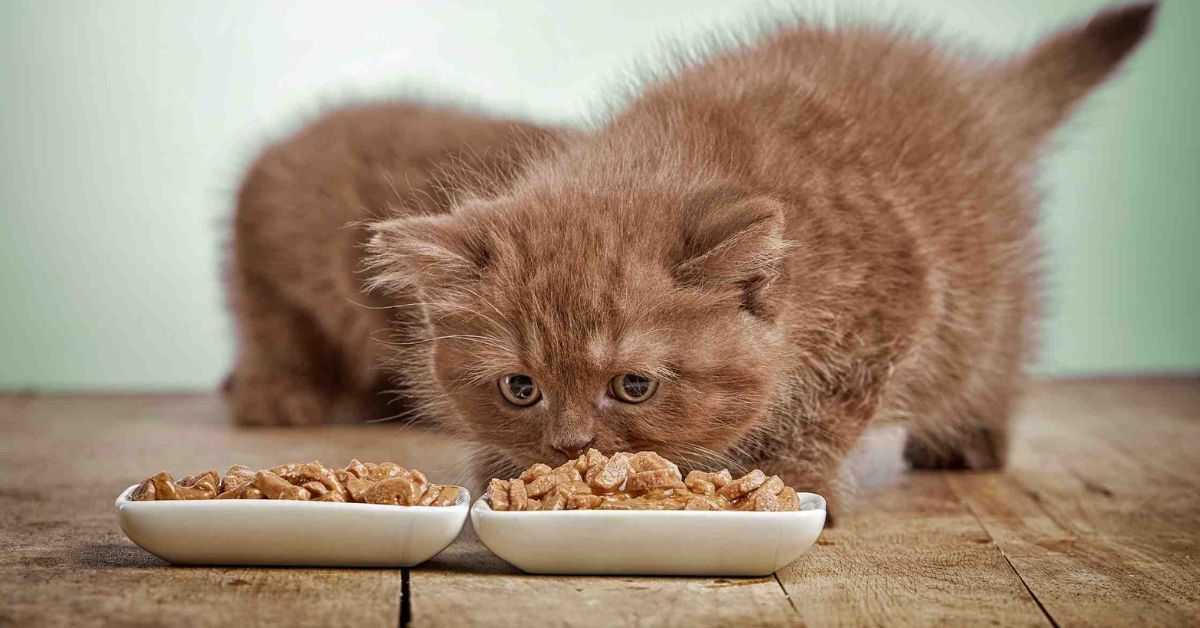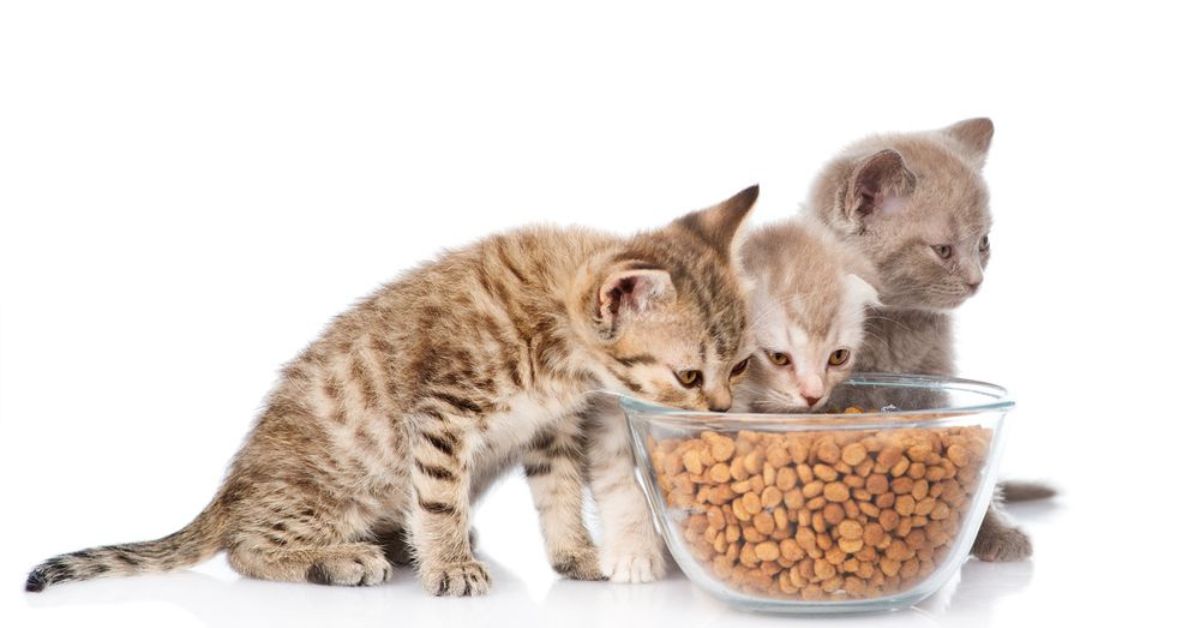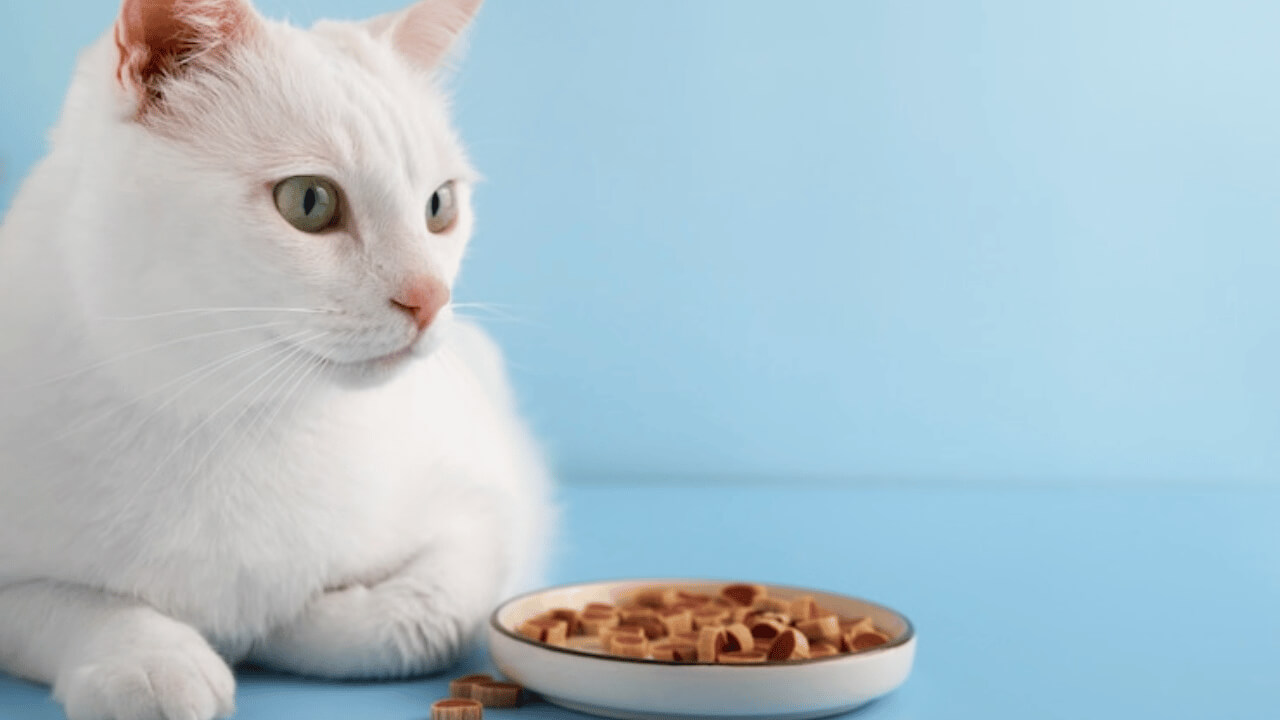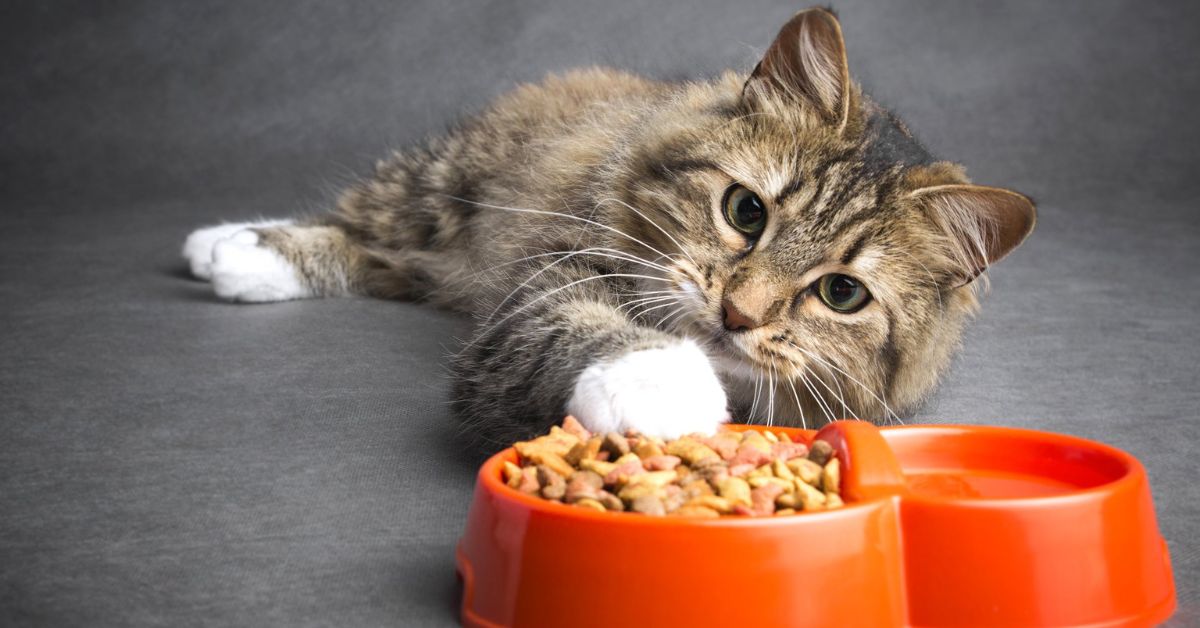Are you wondering if adult cats can adult cats eat kitten food? It’s a common question for pet owners, especially if you have cats of different ages. This blog post will explore whether it’s safe for adult cats to eat kitten food and address the related myths and misconceptions. By the end, you’ll understand the nutritional differences between kitten and adult cat food, the risks involved, and how to choose the proper diet for your adult feline friend.
Can Adult Cats Eat Kitten Food?
Many cat owners might think that since both foods are meant for cats, they should be interchangeable. But this isn’t quite the case. Adult cats can eat kitten food, but it’s not ideal for long-term feeding. Kitten food is formulated to meet the high-energy needs of growing kittens and is packed with calories and nutrients. Adult cats eating kitten food regularly could lead to unintended health consequences.
In some situations, such as when an adult cat needs to gain weight, feeding them kitten food can be temporarily beneficial. However, consulting with a vet before making any dietary changes is essential. While the occasional bite from a kitten’s dish won’t harm your adult cat, consistent consumption can lead to imbalances.
The High Energy Needs of Kittens
Kittens are rapidly growing, requiring more calories, protein, and fat than adult cats. Kitten food is designed to provide these nutrients in concentrated forms. Essential nutrients like DHA (an omega-3 fatty acid) support brain development, while higher protein content aids muscle growth.
The Balanced Diet for Adult Cats
In contrast, adult cats have stable nutritional needs. They require a balanced diet that maintains their weight and supports overall health. Adult cat food contains fewer calories and often includes added ingredients to help maintain joint health, control weight and support urinary health. Excessive nutrients in kitten food can harm an adult cat’s health.
Specialized Needs of Older Cats
Older cats, or elderly cats, have different nutritional needs too. Senior cat food often includes ingredients that support kidney health and joints, with lower calorie content to prevent obesity. Feeding older cats with kitten food could exacerbate age-related conditions.
The Risks of Feeding Kitten Food to Adult Cats
Feeding kitten food to adult cats poses several risks due to differing nutritional needs. Kitten food is high in calories, fat, and protein to support growth and development. For adult cats, excessive calorie intake can lead to obesity, putting them at risk for diabetes, heart disease, and arthritis. Overabundance of certain nutrients, like calcium and phosphorus, can cause kidney and urinary issues.
Kitten food often lacks adequate fibre for adults, leading to digestive problems. Also, the excessive protein may strain older cats’ kidneys. Adult cats require balanced nutrition tailored to their life stage to maintain optimal health. Consistent feeding of kitten food can ultimately have serious long-term health consequences for mature cats. Always consult your vet for suitable dietary choices.
Weight Gain and Obesity
One of the most significant risks of feeding kitten food to adult cats is weight gain. High-calorie content designed for growing kittens can lead to obesity in adult cats. Obesity is a severe health issue that can lead to diabetes, arthritis, and a reduced quality of life.
Nutritional Imbalances
Kitten food contains high levels of certain nutrients that aren’t necessary for adult cats. Over time, this can cause nutritional imbalances. For example, excessive calcium can lead to urinary issues, while too much fat can strain the liver and kidneys.
Digestive Issues
Adult cats may experience digestive problems if they consume kitten food regularly. The higher fat content can lead to gastrointestinal upset, including diarrhoea and vomiting. Maintaining a diet appropriate for their life stage helps ensure their digestive system functions optimally.
Alternatives for Adult Cats
Caring for adult cats involves understanding their unique needs and preferences. As cats transition from playful kittens to mature adults, their dietary requirements, activity levels, and health concerns evolve. Exploring alternatives explicitly tailored for adult cats is essential to ensure your feline friend thrives. From specialized diets and interactive toys to comprehensive health care plans, these alternatives cater to mature felines’ sophisticated tastes and well-being.
This introduction will delve into the various options available to support adult cats’ nutritional, behavioural, and medical needs, emphasizing the importance of a balanced approach. By examining these alternatives, cat owners can make informed decisions that promote longevity, vitality, and a high quality of life for their cherished companions.
Choosing the Right Food
When selecting food for adult cats, look for options explicitly labelled for adult maintenance. These foods are balanced to meet the dietary needs of adult cats, providing the necessary nutrients without the excess calories found in kitten food.
High-Quality Ingredients
Opt for high-quality cat food that lists real meat as the primary ingredient. Avoid products with fillers and artificial preservatives. Brands that emphasize natural ingredients and have a good reputation in the market are usually reliable.
Special Dietary Needs
If your adult cat has special dietary requirements, consult your vet. Many specialized diets are available for weight management, sensitive stomachs, and urinary health. Tailoring the diet to your cat’s needs is crucial for their long-term health.
Practical Advice for Transitioning
Transitioning an adult cat to a new diet, environment, or routine requires patience and careful planning. Start by making gradual changes to reduce stress. When introducing a new diet, mix the new food with the old one, gradually increasing the proportion over a week or two. For environmental changes, like moving homes or rearranging furniture, maintain familiar items such as favourite toys or bedding to provide comfort.
If altering a routine, such as feeding or playtime, do so in small increments to help your cat adjust smoothly. Continuously monitor for signs of distress and offer extra affection and reassurance during transitions. Consulting your veterinarian for personalized advice can also ensure your cat adapts healthily and happily to new situations.
Gradual Transition
To avoid digestive upset, transitioning from kitten to adult cat food should be done gradually. Mix a small amount of adult cat food with the kitten food. Increase the adult food proportion progressively while decreasing the kitten food over 7-10 days.
Monitor Your Cat’s Health
During the transition period, monitor your cat for any signs of digestive issues or changes in behaviour. If your cat shows signs of discomfort, slow down the transition process. Ensure they drink enough water, as hydration is vital for digestion and overall health.
Consult Your Vet
Always consult your vet before significantly changing your cat’s diet. They can provide personalized advice based on your cat’s health status and nutritional needs. Regular check-ups ensure your cat remains healthy and any dietary adjustments are managed effectively.
Conclusion
To sum up, while adult cats can eat kitten food occasionally, it’s not recommended for long-term feeding. Understanding the differences in nutritional needs between kittens and adult cats is crucial for ensuring your pet’s health. Feeding your adult cat the right food helps maintain their health, prevent obesity, and avoid nutritional imbalances.
If you have concerns about your cat’s diet, consult your vet. They can provide tailored advice and help you choose the best food for your feline friend. Transitioning to adult cat food is a significant step in caring for your cat as they grow. Make it smooth and beneficial for their well-being.
For more information and personalized advice, don’t hesitate to contact your vet and explore the best options for your cat’s unique needs. A well-fed cat is a healthy and happy companion.
FAQ
Is it OK for older cats to eat kitten food?
Although giving your adult cat kitten food periodically as a treat or in moderation is OK, it’s not advised as a main diet. Here are a few explanations: Unbalanced nutrition: Adult cats who are consistently fed kitten food may experience an unbalanced diet.
Is there a difference between kitten and adult cat food?
To support the active development of kittens, kitten food contains extra calories, protein, and fat. It is also packed with vitamins and minerals required for their immune systems to develop, along with DHA to promote brain and visual development.
Can I give my cat kitten food to gain weight?
For cats in good health, high-quality kitten food is an excellent option for weight increase—furthermore, most cats like eating kitten food. Young kittens can benefit from the high calorie and nutrient content of Royal Canin Feline Health Nutrition dry cat food, which most cats find very tasty.
What does kitten food have that adult cat food doesn’t?
Kitten food often has more calories, protein, and fat than adult cat food. Sufficient amounts of docosahexaenoic acid (DHA), an omega-3 fatty acid crucial for the development of the brain and eyes. Higher concentrations of specific vitamins and minerals.
Why is kitten food better than cat food?
Because of this, Fromm kitten food has a higher nutrient density than adult cat food. It has the proper amounts of vitamins and minerals and extra calories, protein, and fat to support developing kittens. The greater calorie and fat content of kitten food makes it probable that an adult cat will gain weight if they eats it.













